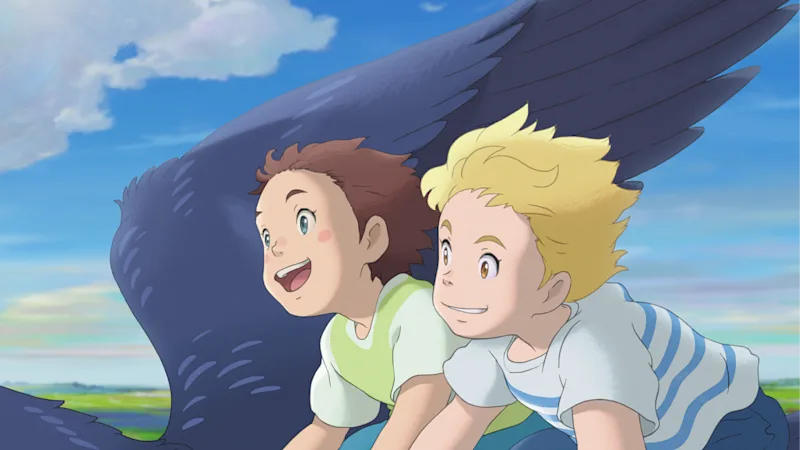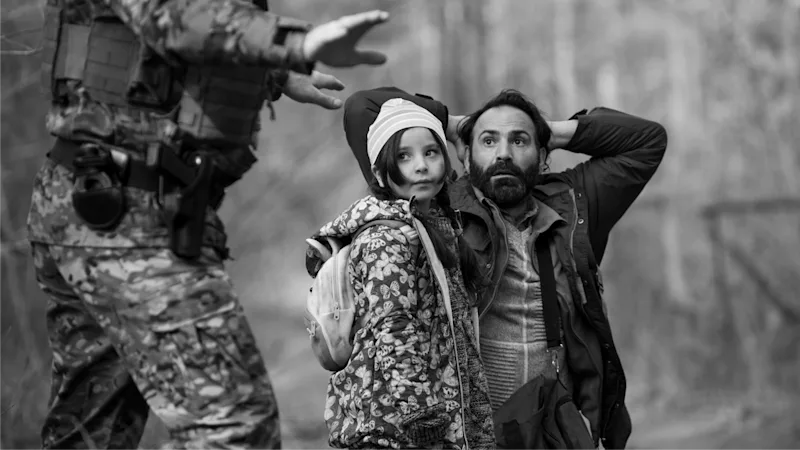With Radical, Mexican-born movie star Eugenio Derbez joins the likes of Edward James Olmos in Stand and Deliver and Robin Williams in Dead Poets Society as another shining cinematic example of a teacher who takes matters into his own hands to inspire his students, sometimes in the face of unthinkable adversity.
Based on a true story, Radical centers on the students at a neglected and poorly performing elementary school in the border town of Matamoros. Enter Sergio Juárez Correa (Derbez), a new teacher who creates waves with his unorthodox and somewhat freewheeling approach to educating his sixth graders — until the kids begin performing beyond anyone's wildest expectations.
"Eugenio was an incredibly well-established and beloved comic actor when we last worked together, but was only just beginning his transition into more dramatic pursuits," says writer-director Christopher Zalla, who previously directed Derbez in 2007's Padre nuestro (also known as Sangre de mi sangre). "As a comic, he was used to working from the outside-in to build a character."
Zalla continues, "Eugenio has spoken about how frightening it was for him to strip away all of the trappings that he may have been hiding behind, and venture into a newer territory where he frankly felt exposed. For reasons I can’t explain, he trusted me though, and we've all been clearly rewarded for his efforts."
Radical debuted during this year's Sundance Film Festival, where it won the Festival Favorite Award. In conversation with A.frame, Derbez discusses what drew him to the real-life story (Derbez also produced) and reveals how the emotional toll of the role led to one of his best performances yet.
A.frame: How did Radical come together?
In 2012, I was still living in Mexico. I was watching the news, and they were talking about this girl from a small town in Mexico called Matamoros. She was from a public school, and they were saying that Wired magazine considered her to be the next Steve Jobs. I didn't know anything else about the story, but I was curious about it. Years later, the reporter who wrote the article, Joshua Davies, offered us the rights to make this into a movie, and I was like, 'Of course! Let's do it,' so we bought it. I learned that there was a teacher behind this girl, and there was this amazing story to tell.
We were looking for a writer and director, and immediately, my business partner Ben Odell said, 'Let's give this to Christopher Zalla.' We worked with him in 2007 on a movie called Sangre de Mi Sangre that won the jury prize at the Sundance Film Festival, but for some reason, Chris was retired and already living in Guatemala. When Ben contacted him, he was in awe of the story — just like I was — and he said, 'You know what? This will be my comeback. I want to tell this story.' He was dealing with education in Guatemala, and Mexico and Guatemala are a very similar thing, education-wise. He wrote a fantastic script, and he understood everything about education in Latin America.

You have a special relationship with your collaborators, because you've worked together before. And Radical is such an emotional movie. As an artist, did you feel that bond offered a safe space to connect and be as vulnerable as you needed to be?
It was a lot of things at the same time. First of all, it was very challenging to play someone not just who existed but is still alive. We decided not to imitate him. I was not trying to impersonate Sergio but to capture his essence, his soul, and the way he connected with the children. The good thing is that I was able to talk to him. We wanted to be accurate in the storytelling; we didn't want to exaggerate or make up things that didn't exist. We were able to talk to the girl, Paloma, and Sergio to tell the story as accurately as possible. We wanted to go to Matamoros, but it was too dangerous. Everyone told us, 'You shouldn't go there and try to shoot the movie. It would make a lot of noise, and it's going to be dangerous,' so we decided to recreate Matamoros in a town two hours away from Mexico City. We found an amazing place that looked just like it.
You tried to keep production under the radar there as well, didn't you?
We were trying not to make a lot of noise about it, because it's always complicated. We didn't want to call the attention of anyone there. We were working in this landfill full of garbage and wearing goggles and masks all day, so we didn't get sick, but the kids got ill many times. We had to change the shooting order constantly, because they were in hospital. We were under really tough conditions. For me, it was complicated, because I'm a comedian and approaching this story in such a tough environment, I got depressed for two months. My wife was really concerned about me, but it was a good thing for my acting. It was helping me to connect. I was very sensitive, and I remember that I was crying constantly. At the same time, I was shocked, because I was like, 'If I am feeling like this by shooting here for two months, I can't imagine the kids that were born here and they have to live here their entire lives.' It was shocking.
There's a beautiful scene at the end of the movie where you are with all the kids, and your emotion seems very authentic. You spent so much time with these kids over the 40-day shoot; you'd been through so much together. Were those genuine tears of emotion and exhaustion?
We shot that scene on the last day for all the kids, so it was a genuine farewell. They knew that too, so in a certain way, it was genius, because everyone was crying even before we were shooting the scene. We were actually running late, and we had to stop, because the kids couldn't stop crying. We became a real family. I was very touched, because they were hugging me constantly and telling me the most incredible things. When we were shooting, it was easy, because saying goodbye to the kids and the depression I was experiencing was very real.

The cinematography in Radical is gorgeous. People might think that it's a movie where that doesn't matter so much, but it perhaps matters more — because of the way people's faces are framed, and the way the characters are placed in the frame, there's an intimacy and a delicacy that people might not be expecting.
You're exactly right. Chris wanted to balance this world that is already shocking. For example, when you are shooting inside these landfills, there is a beauty. I love the scene when you see the kids on top of the trash looking through the telescope at the stars; it was so beautiful and powerful to see the combination of these two worlds. We have an amazing DP called Mateo Londono, who could capture exactly what Chris wanted. We were thrilled, because we could find this balance between beauty in such an ugly place. I think that's one of the powerful things about this movie. You can constantly find these two worlds in every single shot, and I love that.
Chris embraced a style that Robert Altman used where he would have three cameras on you. What was that like for you on set?
I've got to be honest: I never knew what Chris was doing, because we had cameras all around, and he constantly wanted to capture the kids' reactions. For me, it was really hard work. I was telling him, 'Just tell me when the camera is not on me,' because to keep the kids entertained, I was constantly changing the monologue. For example, the story I was telling the kids about the donkey was very powerful, and I was continually changing the lines. Everyone in Mexico knows that I'm Donkey's voice for Shrek, so when I was telling the story, there were one or two takes when I was doing it with Donkey's voice. I had to keep them entertained and curious about what I was saying, because after 10 takes and several hours, they got bored. But when the cameras weren't on me, I could play with it. It worked really well. I didn't know what it was going to end up being until I saw the movie at Sundance, but it was a very refreshing surprise.
Most people have a teacher who inspires them in a unique way or gives them exceptional guidance. Did you have one? Did you draw on that for this?
Yes, I had one. He was a law teacher, and he was amazing. I was trying to analyze what it was about him, and it was that he was very funny. He was not aware of it, and I liked that. He was not trying to be funny, but the way he told stories all the time was so interesting. Humor helps you educate kids better, because they are more interested. Curiosity is probably the best motor to make a kid learn something. I was fortunate to have such a fantastic teacher myself.
RELATED CONTENT:
'Radical' Director Christopher Zalla's Top 5
Director Aitch Alberto on Bringing Queer, Latinx Authenticity to 'Aristotle and Dante' (Exclusive)







